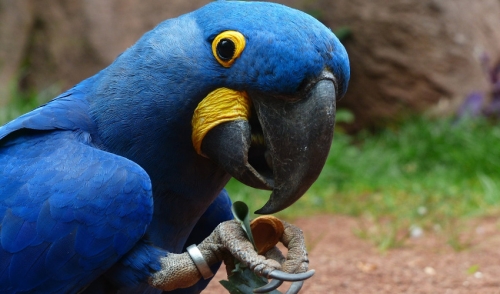10 Symptoms of Diabetes in Dogs
Diabetes can be a challenging condition to manage, especially in pets that cannot verbally communicate how they feel. Recognizing the symptoms of diabetes in...

Your parrot's beak is its most important tool, essential for preening, eating, climbing, drinking, prying, playing and more. A bird's beak must be in top condition to be up to all these tasks, and proper beak care is essential for your pet's good health, comfort and happiness.
Why Parrots Need Beak Care
Wild parrots and parakeets don't get assistance with beak care, so why does your pet bird need any help? The truth is, our pampered pet birds have softer diets, gentler toys and a far more pleasant life than most wild birds. Pet birds don't need to pry through stiff husks or hulls to access one small morsel of food, and they don't need to whittle out a nesting cavity or build a nest to raise their chicks. They also don't need to climb away from potential predators, or climb into strange locations while seeking out food. Furthermore, diet, genetics, trauma and age can all wreak havoc on a bird's beak, and because pet birds often have longer lifespans and eat different diets than their wild cousins, their beaks can be significantly different from wild parrots.
It is common for pet birds to have overgrown, underused beaks or to develop other difficulties with their beaks. Deformations, discoloration, peeling and cracking are all potential beak problems your pet bird may face, but with proper care, you can help your bird keep its beak in peak condition.
Caring for Your Parrot's Beak
There are several ways you can help ensure your parrot has a strong, healthy beak.
Your parrot needs a strong, healthy beak to stay safe and comfortable, and if you take several steps to keep your bird's beak in good condition, they won't have anything to squawk about.
We are constantly adding new specials to our site. Be sure to check back often!
We currently do not have any events scheduled.

Diabetes can be a challenging condition to manage, especially in pets that cannot verbally communicate how they feel. Recognizing the symptoms of diabetes in...
Comments